Grindcore is an extreme fusion genre of heavy metal and hardcore punk that originated in the mid-1980s, drawing inspiration from abrasive-sounding musical styles, such as thrashcore, crust punk, hardcore punk, extreme metal, and industrial. Grindcore is considered a more noise-filled style of hardcore punk while using hardcore's trademark characteristics such as heavily distorted, down-tuned guitars, grinding overdriven bass, high-speed tempo, blast beats, and vocals which consist of growls, shouts and high-pitched shrieks. Early groups like Napalm Death are credited with laying the groundwork for the style. It is most prevalent today in North America and Europe, with popular contributors such as Brutal Truth and Nasum. Lyrical themes range from a primary focus on social and political concerns, to gory subject matter and black humor.

Math rock is a style of progressive and indie rock with roots in bands such as King Crimson and Rush as well as 20th-century minimal music composers such as Steve Reich. It is characterized by complex, atypical rhythmic structures, counterpoint, odd time signatures, and extended chords. It bears similarities to post-rock.
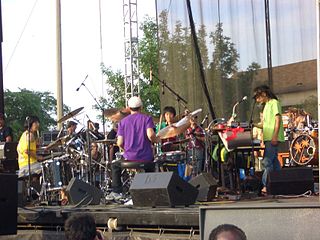
Boredoms is a rock band from Osaka, Japan formed in 1986. The band's sound is often referred to as noise rock, or sometimes Japanoise, though their more recent records have moved toward repetitive psychedelic rock, ambient soundscapes, and tribal drumming.

Neurosis is an American avant-garde metal band from Oakland, California. It was formed in 1985 by guitarist Scott Kelly, bassist Dave Edwardson, and drummer Jason Roeder, initially as a hardcore punk band. Chad Salter joined as a second guitarist and appeared on the band's 1987 debut Pain of Mind and then Steve Von Till replaced him in 1989. The following year, the lineup further expanded to include a keyboardist and a visual artist. Beginning with their third album Souls at Zero (1992), Neurosis transformed their hardcore sound by incorporating diverse influences including doom metal and industrial music, becoming a major force in the emergence of the post-metal and sludge metal genres.
Post-hardcore is a punk rock music genre that maintains the aggression and intensity of hardcore punk but emphasizes a greater degree of creative expression. It was initially inspired by post-punk and noise rock. Like the term "post-punk", the term "post-hardcore" has been applied to a broad constellation of groups. Post-hardcore began in the 1980s with bands like Hüsker Dü and Minutemen. The genre expanded in the 1980s and 1990s with releases by bands from cities that had established hardcore scenes, such as Fugazi from Washington, D.C. as well as groups such as Big Black, Jawbox, Quicksand, and Shellac that stuck closer to post-hardcore's noise rock roots. Dischord Records became a major nexus of post-hardcore during this period. The genre also began to incorporate more dense, complex, and atmospheric instrumentals with bands like Slint and Unwound, and also experienced some crossover from indie rock with bands like The Dismemberment Plan. In the early- and mid-2000s, post-hardcore achieved mainstream success with the popularity of bands like At the Drive-In, My Chemical Romance, Dance Gavin Dance, AFI, Underoath, Hawthorne Heights, Silverstein, The Used, Saosin, Alexisonfire, and Senses Fail. In the 2010s, bands like Sleeping with Sirens and Pierce the Veil achieved mainstream success under the post-hardcore label. Meanwhile, bands like Title Fight and La Dispute experienced underground popularity playing music that bore a closer resemblance to the post-hardcore bands of the 1980s and 1990s.
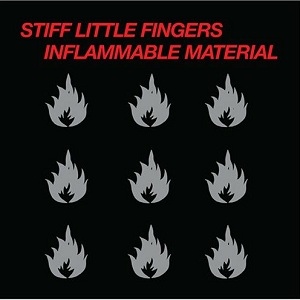
Inflammable Material is the debut album by the Northern Irish punk band Stiff Little Fingers, released in 1979. Most of the album's tracks are about the "Troubles" and the grim reality of life in Northern Ireland with the songs containing themes of teenage boredom, sectarian violence, RUC (police) oppression, etc., urging people to "grab it and change it, it's yours" in what became their signature song "Alternative Ulster". The song "Rough Trade" is about the band's view of the music business as being dishonest, but they have since claimed it is not about their record label which happens to have the same name.

Desperate Straights is a collaborative studio album by British avant-rock groups Slapp Happy and Henry Cow. It was recorded at Virgin Records' Manor Studio and Nova Sound Studios in November 1974, and released in February 1975. It was Slapp Happy's second album for Virgin, and they had invited Henry Cow to record with them.

Boris is a Japanese band formed in 1992 in Tokyo and composed of drummer Atsuo, guitarist/bassist Takeshi, and guitarist/keyboardist Wata. All three members contribute vocals. Boris has released more than twenty studio albums on various labels around the world, as well as a wide variety of live albums, compilations, EPs, singles, and collaborative albums. They have collaborated with acts such as Sunn O))), Merzbow, Keiji Haino, and guitarist Michio Kurihara.

The Complete In a Silent Way Sessions is a three-disc box set by trumpeter Miles Davis released by Legacy Records, featuring recordings from the sessions that would produce his 1969 album In a Silent Way as well as transitional pieces from the era. Besides two tracks previously released on the 1968 album Filles de Kilimanjaro, the set also includes material for Columbia outtake compilations Water Babies, Circle in the Round, and Directions. The box set features previously unreleased music, mostly from the In a Silent Way sessions proper. As well as the CDs, it includes essays by Michael Cuscuna and Bob Belden and details of the recording sessions. It is number five in the Legacy series of Miles Davis' Complete Sessions box sets.

Pink is the tenth album by Japanese experimental music band Boris. It was originally released in 2005 through Diwphalanx Records in Japan and subsequently reissued in 2006 by American label Southern Lord Records. The album received favorable reviews, particularly for incorporating more melody into the band's abrasive sound.

Chocolate Synthesizer is the fourth studio album by Boredoms. It was originally released via WEA Japan and Reprise Records in 1994. It was recorded in four days and mixed in a week. In 2013, it was re-released on vinyl by the California-based label 1972.

Spiral Scratch is an EP and the first release by the English punk rock band Buzzcocks. It was released on 29 January 1977. It is one of the earliest releases by a British punk band. The EP is the only Buzzcocks studio release with original singer Howard Devoto, who left shortly after its release to form one of the first post-punk bands, Magazine.

Super Roots is the first installment of the Super Roots EP series by Japanese experimental band Boredoms, released in 1993 by WEA Japan, in 1994 by Reprise/Warner Bros. Records in the United States, and rereleased in 2007 by Very Friendly Records in the United Kingdom and Vice/Atlantic Records in the United States.
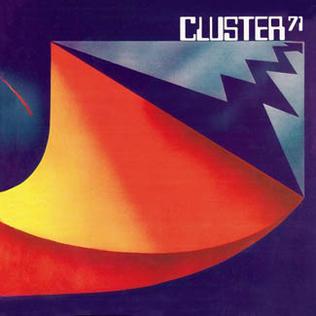
Cluster is the debut studio album by German electronic music outfit Cluster. It was recorded in 1971 and released the same year by record label Philips. It is also the only album on which producer Conny Plank is credited as a member.
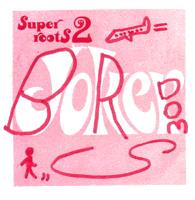
Super Roots 2 is the second installment of the Super Roots EP series by Japanese experimental band Boredoms. Released as a 3" CD, it was mailed to people in Japan who completed and sent a survey card enclosed with the Japanese release of Chocolate Synthesizer. Because of its short duration, it was the only Super Roots not to be rereleased by Vice Records in 2007.

Madness, Love and Mysticism is an album of contemporary classical music by American composer John Zorn released in 2001 on the Tzadik label.
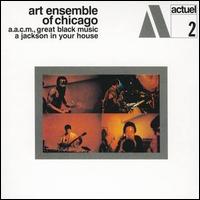
A Jackson in Your House is a 1969 album by the Art Ensemble of Chicago recorded for the French BYG Actuel label. It features performances by Lester Bowie, Joseph Jarman, Roscoe Mitchell and Malachi Favors Maghostut. When issued on CD by Affinity in 1989, the track "The Waltz" was replaced by a six-minute live excerpt entitled "Hey Friend" which has never reappeared on any subsequent reissue.
Dominique Leone is an American musician and writer based in New York City. He was born in Shreveport, Louisiana on December 29, 1973, and grew up in the Dallas, Texas area.

Splay is the second album by drummer Jim Black's AlasNoAxis featuring clarinetist/saxophonist Chris Speed, guitarist Hilmar Jensson and bassist Skúli Sverrisson released on the Winter & Winter label in 2002.

No is the twenty-sixth studio album by Japanese experimental band Boris, released 3 July 2020 on the band's label Fangs Anal Satan.
















